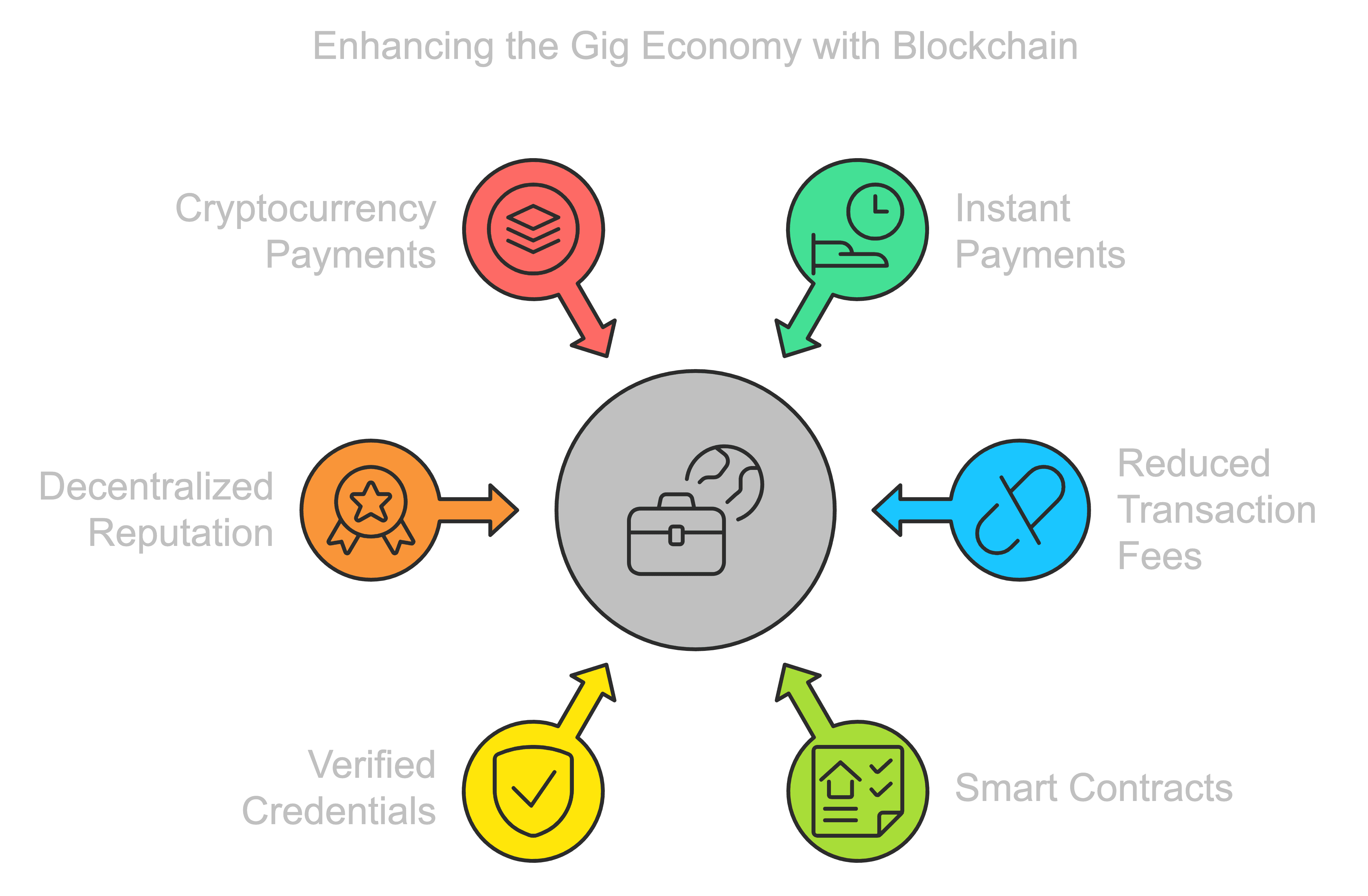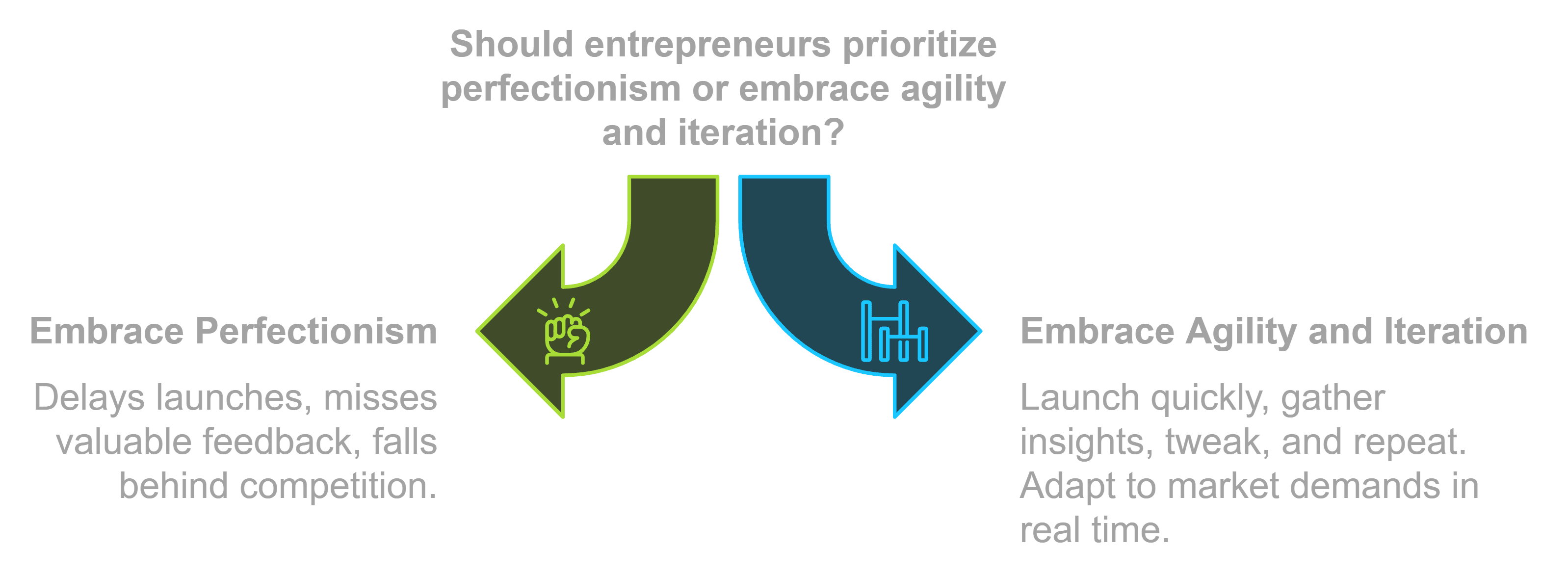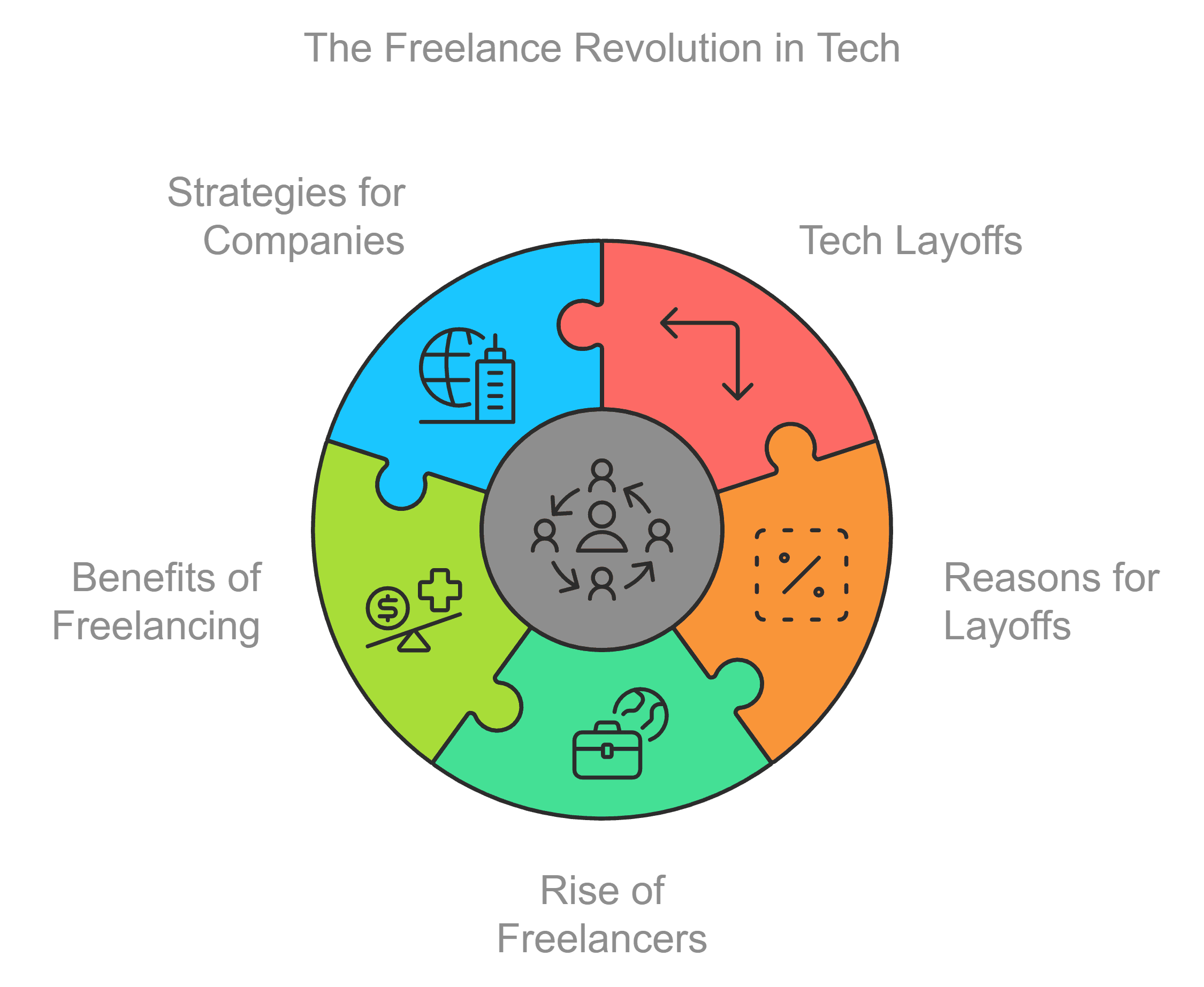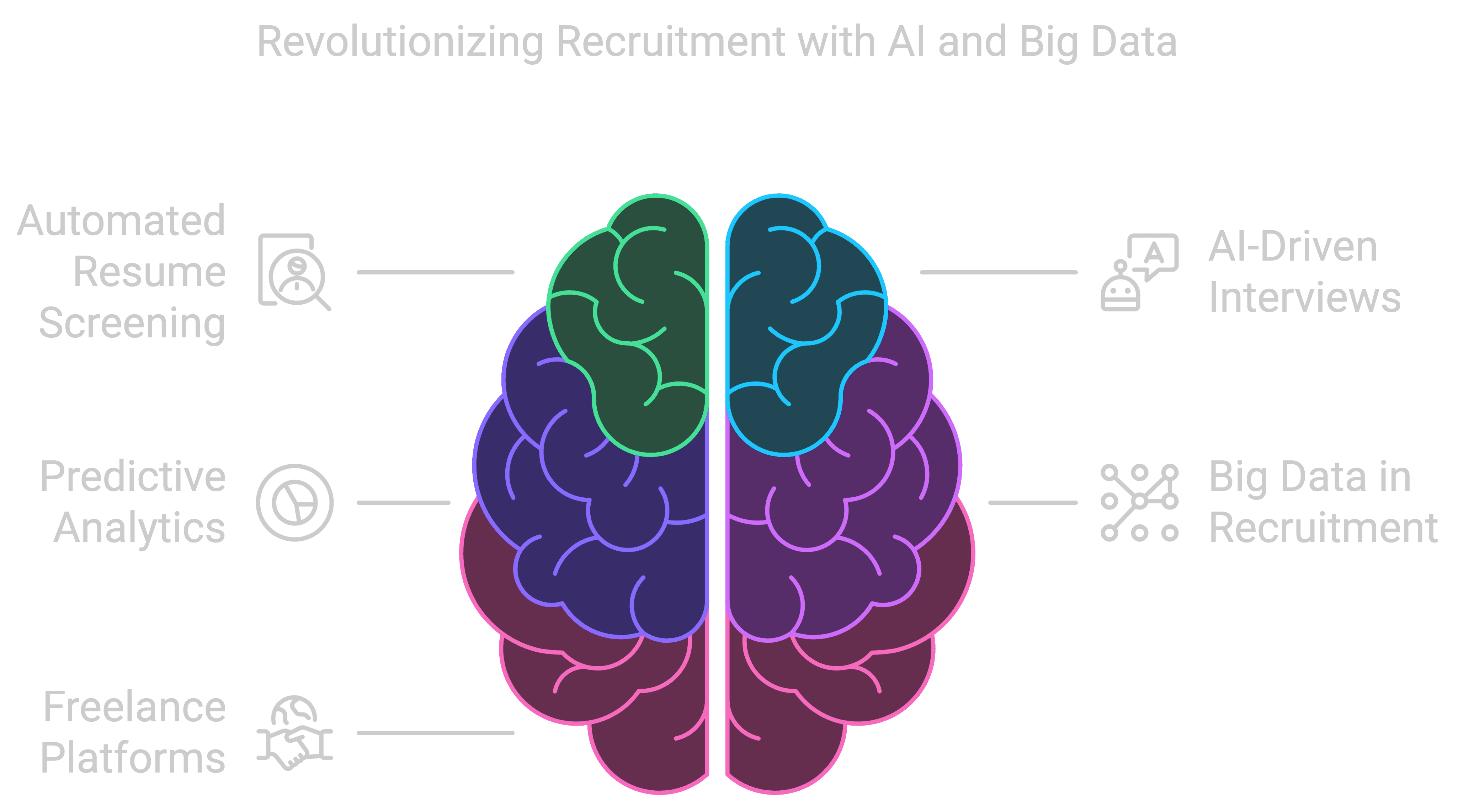February 25, 2024
Blockchain's Impact on the Gig Economy
How Blockchain is Reshaping the Gig Economy: A Humanized Look
Let’s be honest—the gig economy has its fair share of challenges. From delayed payments to a lack of trust between freelancers and clients, navigating this space can sometimes feel like a bumpy ride. But lately, there's been a new player stepping in to smooth things over: blockchain technology.
Now, before your eyes glaze over at the mention of blockchain, let me assure you—it’s not just about cryptocurrencies. In fact, blockchain is starting to make life easier for freelancers like you and me by improving payment processes, creating automated contracts, and boosting trust in a world where you're often working with someone halfway around the globe. Pretty cool, right?
Here’s a closer look at how this game-changing tech is transforming the gig economy—and why you should be paying attention.
Getting Paid Faster and Fairer with Blockchain
You know that feeling when you've wrapped up a project, sent off the invoice, and then...crickets? Waiting to get paid is one of the most frustrating parts of freelancing. We’ve all been there. Payments get delayed, eaten up by fees, or even lost in the black hole of international banking.
But blockchain is shaking things up. One of the biggest perks is instant payments. That’s right—real-time transactions that happen as soon as you finish the job. No more waiting days (or weeks!) for your money to trickle in. And when I say “instant,” I mean it. These transactions happen right on the blockchain, cutting out all the middlemen who slow things down.
On top of that, blockchain reduces those pesky transaction fees. So, if you’ve ever gritted your teeth at losing a chunk of your hard-earned cash to third-party platforms or international wire fees, this is a huge win. More money in your pocket, where it belongs.
And get this—blockchain even makes micropayments feasible. For freelancers who charge for smaller tasks or services, this is a game-changer. With traditional payment systems, high fees often make small jobs unprofitable. But blockchain allows you to charge for those quick gigs without worrying about losing most of it to fees.
Smart Contracts: No More Chasing Clients for Payment
I remember the early days of freelancing, and one of the biggest headaches was managing contracts and payments. You'd send over your work, then awkwardly wait, hoping the client sticks to the agreement. Sound familiar? Now, imagine a world where you don’t have to chase clients or send reminder emails. That’s what smart contracts on the blockchain offer.
Smart contracts are self-executing contracts where the terms are coded right into the blockchain. So, once you hit your project milestones or complete the job, the contract automatically releases your payment. No middlemen, no trust issues. You’re paid immediately, and everyone walks away happy.
This isn’t just about efficiency—it’s about peace of mind. You don’t have to worry if a client is going to pay you late (or worse, not pay at all). The blockchain makes sure the contract is honored, no ifs, ands, or buts. It's like having an ironclad agreement that can’t be tampered with, which is pretty reassuring when you're working with new clients who might be on the other side of the world.
Building Trust in a Decentralized World
Trust is one of the biggest obstacles freelancers face, especially when working with people they’ve never met. Let’s be honest—it’s hard to know if the client on the other end of that email thread is legit. Blockchain is helping to fix that by making everything more transparent and secure.
Every transaction on a blockchain is recorded in a public ledger that can’t be changed. So if a client says they paid you, you can see for yourself. And if they haven’t? Well, that’s easy to check, too. This level of transparency builds trust, not just between you and your client but within the entire gig ecosystem.
One of the coolest parts of blockchain is the potential for verified credentials. Imagine a world where your work history, skills, and even client reviews are stored on the blockchain for anyone to see. It’s like having a resume that’s impossible to fake. Clients can trust that you’re the real deal, and you can trust that their payment will come through when you deliver the goods.
Plus, blockchain could introduce decentralized reputation systems. Instead of relying on star ratings on freelance platforms (which, let’s be honest, can be a bit arbitrary), these systems could track your performance across different projects and clients in a transparent way. It’s a fairer way of building your reputation and could help you land better gigs in the long run.
Expanding the Global Gig Economy
One of the most exciting things about blockchain is how it’s making the global gig economy more accessible. Have you ever turned down a client because the hassle of dealing with international payments wasn’t worth it? Or maybe you’ve been frustrated by currency conversion fees eating into your profits?
With blockchain, those issues fade into the background. You can get paid in cryptocurrency or stablecoins that aren’t tied to a specific country, avoiding all the headaches of currency exchange. No more dealing with fluctuating rates or waiting for international transfers to clear. You can work with clients from anywhere in the world, and payment becomes one less thing to worry about.
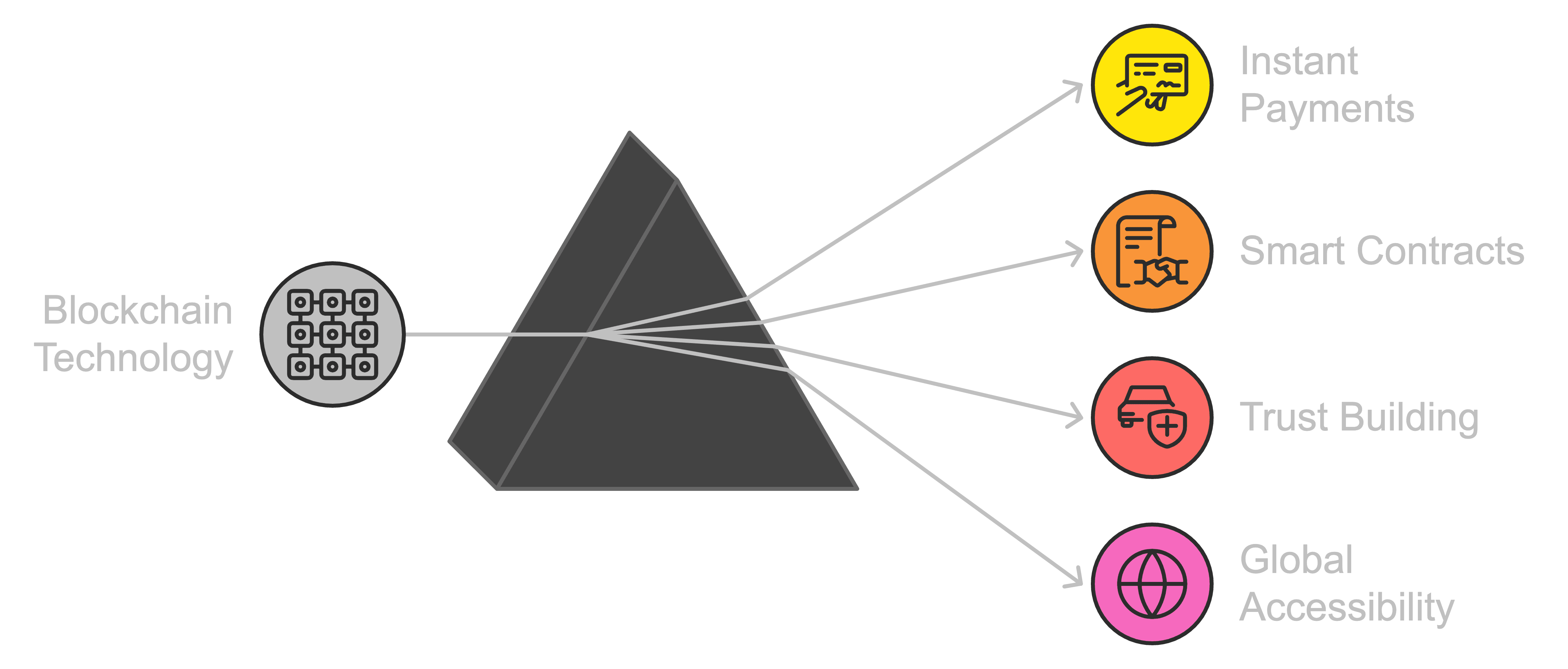
Real-World Examples of Blockchain in Action
Platforms like BeGig are already leveraging blockchain to improve the freelance experience. BeGig connects freelancers with clients while ensuring secure payments and trustworthy contracts through blockchain technology. They’re part of the growing number of platforms that see the potential for decentralized systems to fix some of the biggest pain points in the gig economy.
Other platforms, like Ethlance and Blocklancer, are pushing the envelope even further by using blockchain to remove platform fees and ensure freelancers get paid fairly. It’s inspiring to see how decentralized technology is giving power back to the freelancers and creating a more equitable environment for everyone.
